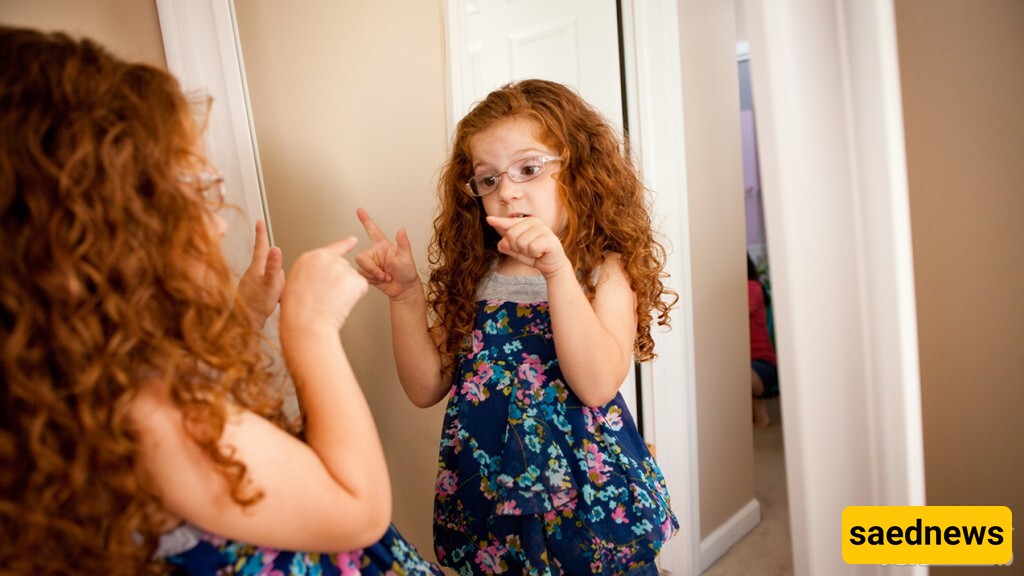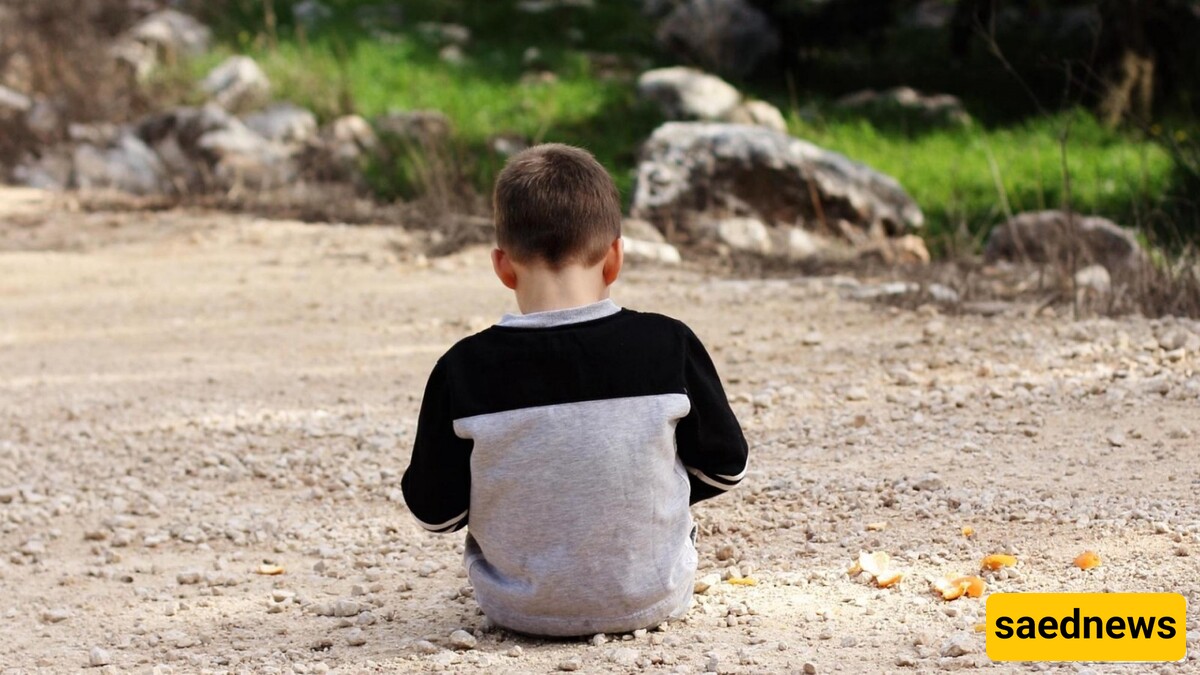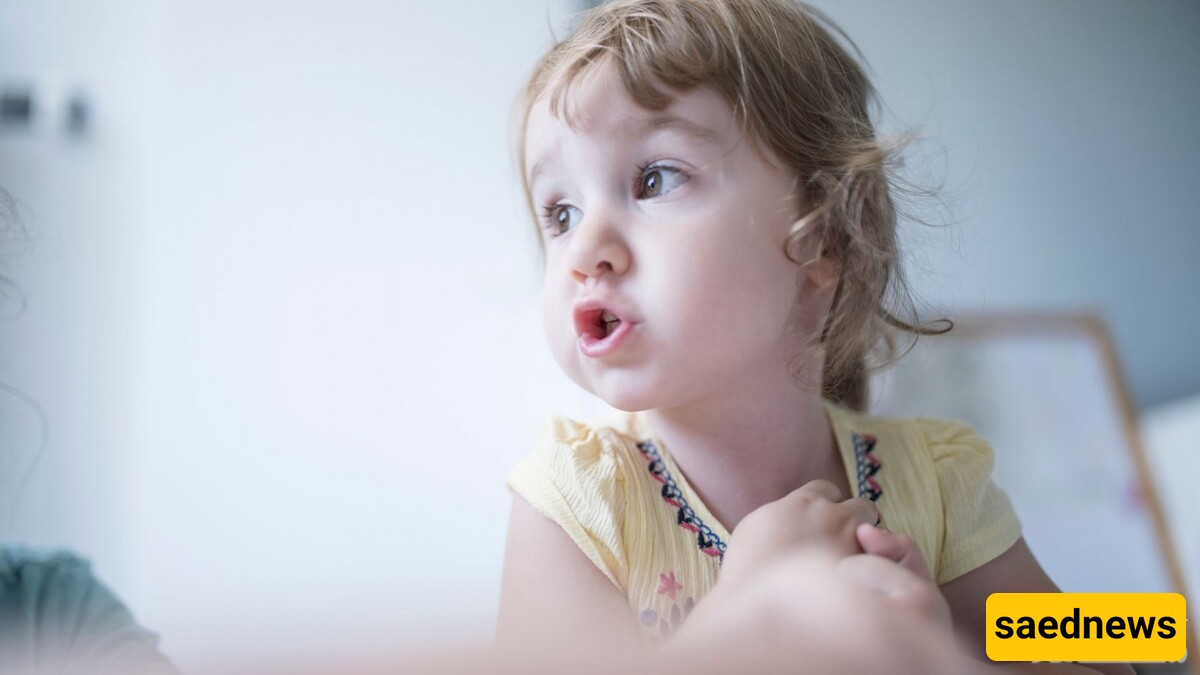You may have often encountered the scene where your child talks to themselves while playing or doing other activities. Many parents become concerned when they see their child talking to themselves, assuming it to be abnormal. However, depending on the child's age, self-talk can be either normal or a cause for concern.

One of the common behaviors observed in children by parents is self-talk. This behavior is natural in children aged 3 to 5 and is considered a way for them to express their thoughts and emotions. Many parents feel anxious when they see their child engaging in this behavior. However, such behaviors should not be seen as an illness but rather as a sign of a child's strong imagination and creativity, which can lead to positive and constructive developments in the future. Understanding the benefits of self-talk and knowing how to respond appropriately as a parent is important.

The way children talk to themselves differs from how adults do. Adults usually talk to themselves silently, but children initially talk aloud before developing internal speech as they grow. Self-talk allows children to disconnect from the external world and enter their imaginative world. Generally, children's self-talk can be categorized into three stages:
Private speech about planning an activity
Speech during the activity itself
Speech reflecting on the final result
Self-talk helps in the development of speech and language skills. In other words, it reflects a child's cognitive and linguistic growth.
Research shows that children who talk to themselves while doing tasks perform better. Through private speech, they express their inner world, experiences, emotions, and thoughts. The topics of a 4-year-old's self-talk are more limited and selective than those of a 3-year-old. By ages 6 and 7, self-talk typically diminishes, transitioning into internal speech, especially when faced with challenges.
As mentioned earlier, children engage in self-talk during their speech development phase. There are various reasons why a child may talk to themselves, and understanding these reasons can help parents avoid unnecessary worries. Some common causes include:

Age-appropriate behavior (ages 3 to 5)
Imaginative play and talking to imaginary friends
Reenacting daily activities through play and self-talk
Finding solutions to their questions by talking out loud
Feeling lonely or lacking attention from parents
Numerous studies highlight the advantages of self-talk in children, including:
Higher intelligence levels: Research indicates that children who talk to themselves tend to be more intelligent than those who do not. Self-talk is often a sign of a bright child.
Cognitive and social growth: When a child talks to themselves, they process and communicate the knowledge they have gained.
Improved self-regulation: Children who engage in self-talk develop better self-control and act less impulsively.
Enhanced creativity and imagination: Self-talk helps children visualize ideas, fostering problem-solving and innovative thinking.
Development of artistic expression: In addition to self-talk, activities like drawing and painting also nurture a child's creativity.
As previously mentioned, self-talk in young children is natural and usually fades as they grow. However, parents should pay attention to certain signs that may indicate an issue requiring consultation with a specialist:
Complete disconnection from reality
Inability to distinguish between imagination and real life
Repeating the same words or phrases excessively
Continuing excessive self-talk beyond the typical age range
If a child is overly absorbed in imaginary play to the extent that they lose touch with reality or repeat phrases in an unusual manner, they may have a developmental disorder.
A pervasive developmental disorder (PDD) can lead to issues such as:
Difficulty interacting with others
Inability to understand social behaviors
Limited speech and difficulty using language for communication, especially in crowded places
Children with pervasive developmental disorders, such as autism, often exhibit repetitive behaviors and struggle with social interactions. Autism is a common developmental disorder similar to schizophrenia in adults, though its severity can vary. However, it is important to note that signs of hallucinations alone do not necessarily indicate a disorder. Parents should carefully observe their child’s speech and physical behavior and consult a psychologist if needed.
If a child talks to themselves within the normal age range (before entering school), parents should not worry. One possible reason for self-talk is loneliness or a lack of attention. If a child frequently engages in self-talk, parents should:
Show attention and value their child to boost their confidence.
Listen to what the child is saying to understand if it reflects their daily experiences. If the speech is not overly repetitive, there is no need for concern.
Engage with the child’s imagination by asking questions about their imaginary friends or play stories. This can provide insights into the child's emotions and thoughts while helping their speech development.
Avoid overemphasizing self-talk, as excessive attention to the behavior can encourage the child to isolate themselves further.
Seek professional help if self-talk persists abnormally beyond early childhood or if the child struggles to differentiate imagination from reality.
Children go through many developmental stages, each contributing to their cognitive and emotional growth. However, parents must be attentive to abnormal behaviors. In some cases, stress, lack of attention, or emotional needs can manifest in self-talk or other repetitive behaviors. Early recognition and intervention can help ensure a child's mental well-being and healthy development.

